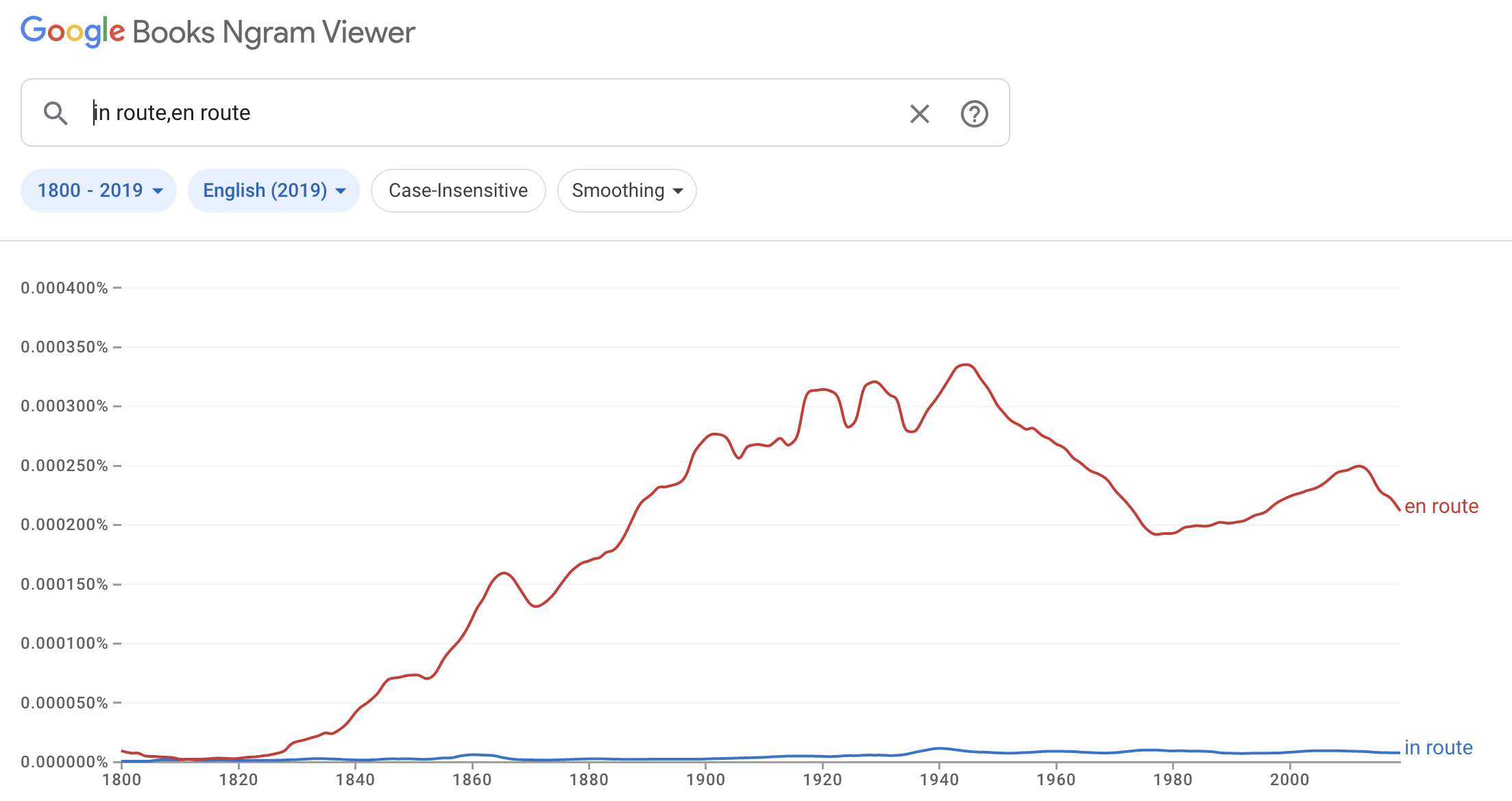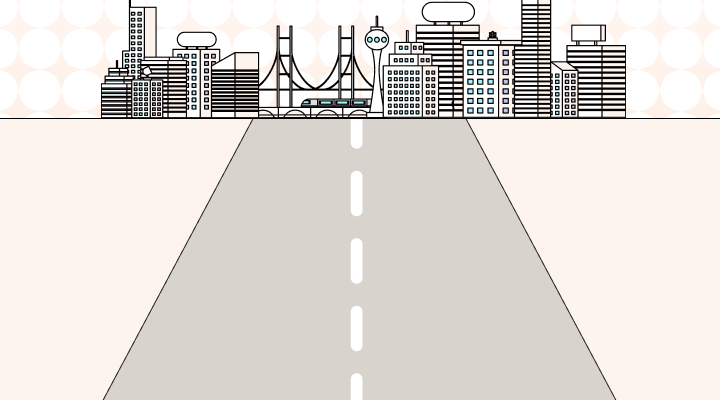En route is the only correct phrase. In route is simply a misspelling of en route. On route is another common misspelling because the pronunciation of en route sounds more like on route.
Let us take a look at the meaning of en route.
- En route (adverb): on the way; during the process of going to a destination
The statistics

In the Google Books Ngram Viewer, you can see that en route dominates over in route in the Google Books database. Because in route is simply a misspelling, it is not used in published material and only mistakenly used in casual settings.
Example sentences
Take a look at these example sentences to get an idea of how en route is used in context.
- I was driving to Uncle Bill’s house and saw a herd of deer en route.
- Nate stopped by the ice cream shop en route to school.
- En route you could hear the echos of the canyon.
- En route to home Jill saw the neighborhood cat fighting with a new street cat.
- The team is still en route to the local mountain they agreed on climbing.
- The project budget changed more than a dozen times en route to finalization.
- We need to find a gas station en route to Arizona, or we’ll run out of gas in the middle of nowhere.
- More butterflies joined en route to the southern part of the country.
- The soldiers couldn’t find any water en route to the base.
- The paramedics team made sure the basketball player’s oxygen levels and heart rate were normal en route to the hospital.
Not sure how to use en route in a sentence? You can try replacing it with “on the way” and see if the sentence still makes sense. En route typically is used when expressing that something is on the way to a physically location, but it can also be used for an abstract goal or state of being.

Origin
The phrase en route is from French, and in French, it also literally means “on the way.”
More French phrases used in English
There are thousands of French words and word compounds used in English today. Below are some common French phrases that have established themselves in the English language.
- déjà vu
- cul-de-sac
- RSVP (répondez s'il vous plaît)
- femme fatale
- grand prix
- film noir
- laissez-faire
- avant-garde
- vis-à-vis
- faux pas
Why all the French?
Ever wondered why there are so many French words and phrases in English? In the year 1066, the Normans, members of the Vikings, invaded and occupied England. They continued to rule England for almost 100 years. The Normans spoke a dialect of French which resulted in French words being borrowed and used in English.
It is difficult to find a language that was not influenced by at least one other language. Language affect other languages, especially in this modern era where globalization and the Internet unites the world.













